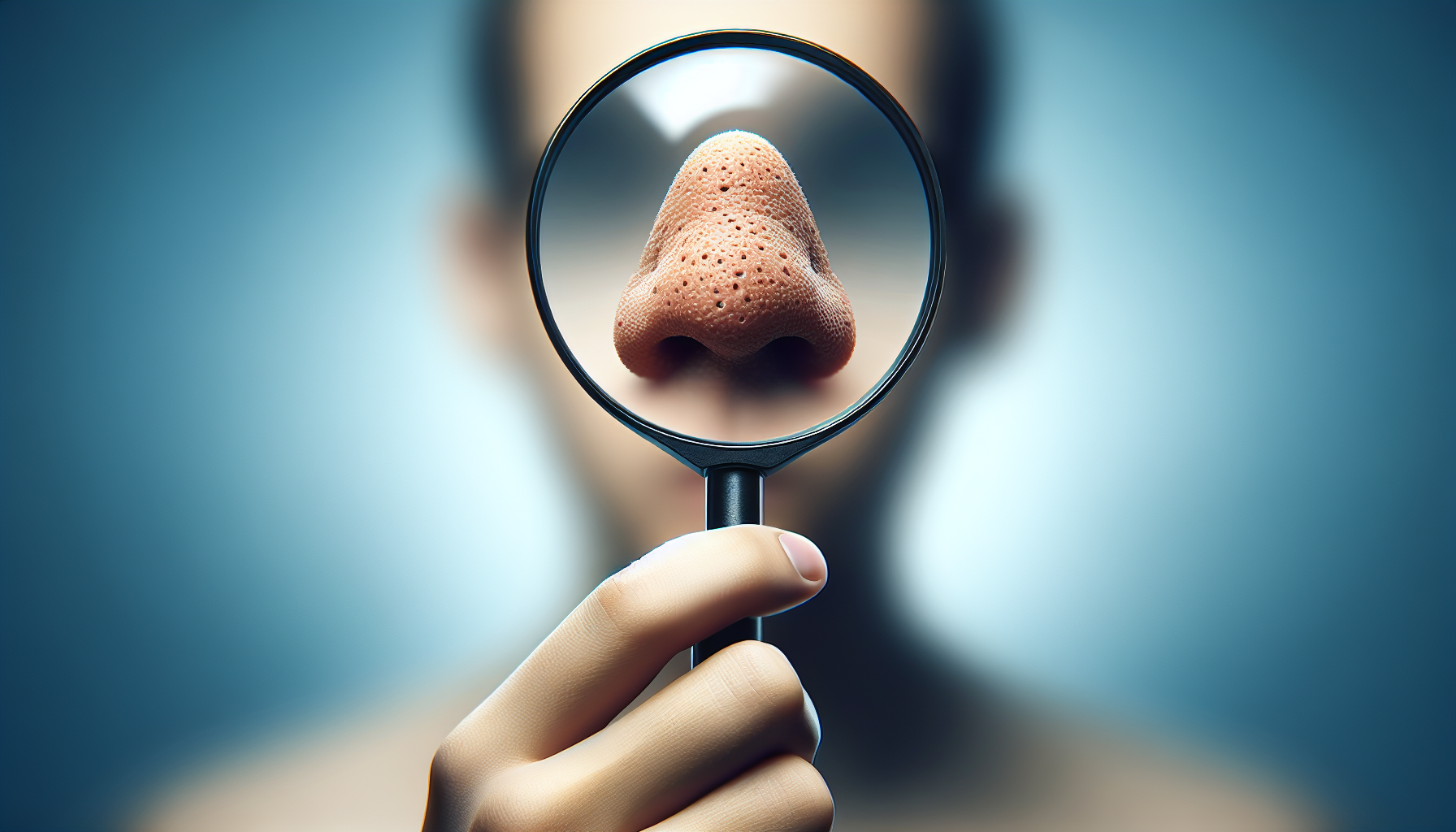Have you ever wondered why you’re suddenly finding yourself plagued with an abundance of new blackheads? It can be frustrating to see your complexion burdened with these pesky blemishes, but fear not, for there is an explanation. In this article, we will explore the common causes behind this influx of blackheads and provide you with some helpful tips to combat their emergence. So sit back, relax, and let’s unravel the mystery behind why you’re getting so many new blackheads.
Causes of Blackheads
Blackheads can be a frustrating skin concern, but understanding the causes behind their formation can help in effectively managing and preventing their occurrence. Several factors contribute to the formation of blackheads, ranging from excess oil production to hormonal changes, poor skincare routines, and even genetics.
Excess Oil Production
Excess oil production, also known as sebum, is a common cause of blackheads. Sebum is produced by the sebaceous glands in your skin and plays a crucial role in keeping it moisturized. However, when the sebaceous glands produce an excessive amount of sebum, it can mix with dead skin cells and clog the hair follicles, leading to blackhead formation.
Clogged Hair Follicles
Clogged hair follicles are another major contributor to blackhead formation. Hair follicles are openings in the skin where hair grows. When dead skin cells and excess oil accumulate, they can clog these follicles, creating the perfect environment for blackheads to form.
Hormonal Changes
Hormonal changes can also play a significant role in the development of blackheads. During puberty, the surge of hormones can cause an increase in oil production, leading to blackhead formation. Similarly, hormonal fluctuations during the menstrual cycle and pregnancy can contribute to the occurrence of blackheads. Hormonal imbalances can disrupt the natural balance of oil production, making the skin more prone to blackheads.
Poor Skincare Routine
Maintaining a proper skincare routine is essential in preventing blackheads. Inadequate cleansing and not using appropriate products can allow dirt, oil, and dead skin cells to accumulate on the skin’s surface, leading to the formation of blackheads. Skipping moisturization can also be detrimental as it may cause the skin to produce more oil to compensate for the lack of moisture, potentially worsening blackhead formation. Additionally, over-washing and over-exfoliation can irritate the skin, further exacerbating the problem.
Makeup and Cosmetics
Makeup and certain cosmetics can contribute to blackhead formation, especially if they contain comedogenic ingredients. Comedogenic ingredients have a tendency to clog pores, leading to the development of blackheads. Failing to remove makeup properly can also trap dirt and oil on the skin, increasing the likelihood of blackheads. Choosing non-comedogenic products and allowing the skin to breathe can help prevent blackhead formation.
Sweat and Humidity
Sweat and humidity can create an environment that promotes blackhead formation. Sweat, along with dead skin cells, can accumulate on the skin’s surface and clog pores. In addition, heat and humidity can cause the skin to produce more oil, exacerbating the problem. Proper cleansing after sweating and maintaining a clean and dry face can help prevent blackheads in humid environments.
Certain Medications
Certain medications, both prescription and over-the-counter, can contribute to the development of blackheads as a side effect. Medications such as steroids, hormonal contraceptives, and high-dose vitamin B supplements are known to have the potential to trigger blackheads. Consulting a healthcare professional and discussing alternative options can help manage blackhead formation while still addressing the underlying medical condition.
High Stress Levels
High stress levels can impact the skin’s health and contribute to blackhead formation. Stress can lead to hormonal changes, increasing oil production and making the skin more prone to blackheads. Stress can also result in increased sweating, which can further exacerbate blackhead formation. Implementing stress management techniques and prioritizing relaxation and self-care can help reduce the occurrence of blackheads.
Diet and Nutrition
Although the impact of diet and nutrition on blackhead formation is not yet fully understood, some studies suggest a potential association. Consuming a diet high in refined carbohydrates, sugars, and dairy products may trigger the release of insulin and other hormones, potentially leading to increased oil production and blackhead formation. Eating a balanced and nutritious diet, rich in fruits, vegetables, and whole grains, may help maintain healthier skin.
Genetics
Genetics can play a significant role in determining an individual’s predisposition to blackheads. Some people may inherit skin types that are more prone to blackheads and increased oil production. Additionally, variations in sebum composition can affect how easily blackheads form. While genetics cannot be changed, adopting a diligent skincare routine and understanding one’s skin type can help manage blackheads effectively.
In conclusion, blackheads can occur due to various factors, including excess oil production, clogged hair follicles, hormonal changes, poor skincare routines, makeup and cosmetics, sweat and humidity, certain medications, high stress levels, diet and nutrition, and genetics. By understanding these causes, implementing appropriate skincare practices, and considering lifestyle changes, it is possible to manage and prevent blackheads effectively. Remember, everyone’s skin is unique, so finding a routine that works best for you may require some trial and error. Don’t be discouraged; with time and patience, you can achieve clearer, healthier-looking skin.
